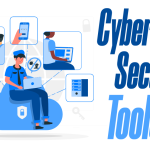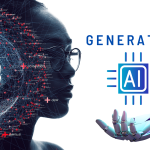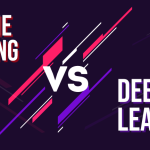Technology is evolving faster than ever, redefining how we live, work, and communicate. From artificial intelligence to quantum computing, new emerging technologies are transforming industries and creating opportunities that once existed only in science fiction. Understanding these innovations is essential for businesses, developers, and students who want to stay ahead in the digital era.
Table of Contents
Artificial Intelligence and Machine Learning
Artificial Intelligence (AI) remains the cornerstone of modern innovation and is among emerging technologies. Through machine learning (ML), systems can analyze data, recognize patterns, and make intelligent decisions without human intervention. AI now powers everything from chatbots and virtual assistants to medical diagnosis and fraud detection systems.
Recent advancements like Generative AI (ChatGPT, Gemini, Claude) have taken human-computer interaction to new levels. These models can write, code, translate, and even create art. Businesses are leveraging AI for predictive analytics, customer insights, and workflow automation. According to IBM’s AI Adoption Index, over 35% of global enterprises have already integrated AI into their core operations.
Quantum Computing
Quantum computing represents a leap forward in processing power is one of the powerful technologies. Instead of traditional bits, quantum computers use qubits, which can exist in multiple states simultaneously. This property allows them to solve complex problems such as drug discovery, encryption, and financial modeling much faster than classical computers.
Companies like IBM Quantum, Google Quantum AI, and Rigetti are actively developing quantum processors accessible via the cloud. Although still experimental, this technology could revolutionize cybersecurity and computational chemistry in the coming decade.
Extended Reality (XR): AR, VR, and MR
Extended Reality (XR) term that unites Augmented Reality (AR), Virtual Reality (VR), and Mixed Reality (MR) is changing how we experience digital content. In education, AR overlays 3D models onto textbooks; in gaming, VR immerses users in lifelike environments; and in industry, MR enables engineers to visualize prototypes before building them.
Apple’s Vision Pro, Meta’s Quest 3, and Microsoft’s HoloLens are leading this revolution. Beyond entertainment, XR technologies are shaping remote work, healthcare training, and architectural visualization. The global XR market, according to Statista, is projected to surpass $350 billion by 2030.
5G and Next-Generation Connectivity
5G technology is more than just faster mobile data. It’s the foundation for the Internet of Things (IoT), autonomous vehicles, and smart cities. With latency reduced to milliseconds, 5G networks allow devices to communicate almost in real time.
For example, in smart factories, robots equipped with 5G sensors can coordinate production lines autonomously. In healthcare, 5G enables remote surgeries where doctors control robotic instruments thousands of miles away. As more telecom companies expand infrastructure, the benefits of ultra-low latency and high bandwidth will soon become universal.
Internet of Things (IoT) and Smart Devices
The Internet of Things (IoT) connects billions of devices appliances, cars, sensors, and even clothing—to share data and make intelligent decisions. Smart homes use IoT devices like thermostats and cameras to automate daily life, while industrial IoT systems monitor machines and predict maintenance needs.
Security remains a major concern, so companies are investing in IoT cybersecurity frameworks and edge computing solutions to protect user data. Major platforms such as AWS IoT Core, Google Cloud IoT, and Azure IoT Hub are helping businesses build scalable, secure ecosystems.
Blockchain Beyond Cryptocurrency
Blockchain is no longer limited to cryptocurrencies like Bitcoin or Ethereum. The underlying distributed ledger technology (DLT) is now used for supply chain management, digital identity verification, and decentralized finance (DeFi).
For example, the food industry uses blockchain to track ingredients from farm to shelf, ensuring transparency and reducing fraud. Governments are exploring blockchain-based voting systems, while companies are experimenting with NFTs for intellectual property rights.
Visit Ethereum.org to explore real-world blockchain projects and developer tools.
Biotechnology and Genetic Engineering
The intersection of biology and technology is reshaping healthcare. CRISPR-Cas9 gene editing allows scientists to modify DNA precisely, potentially curing genetic diseases. Meanwhile, bioprinting uses 3D printing to create tissues and organs, revolutionizing transplantation research.
The COVID-19 pandemic accelerated bioinformatics and vaccine development using AI-driven analysis. As biotechnology continues to merge with data science, personalized medicine will soon become a reality for millions.
Renewable Energy and Green Tech
The global push toward sustainability has led to breakthroughs in green technology. Innovations in solar panels, wind turbines, and energy storage are making renewable energy more efficient and affordable. Smart grids powered by AI now predict energy consumption and reduce waste.
Electric vehicles (EVs) are also part of this movement. Companies like Tesla, BYD, and Rivian are driving the transition toward cleaner transportation. According to the International Energy Agency, renewable power capacity is expected to grow by 60% before 2030.
Cybersecurity and Digital Trust
As technology advances, so do cyber threats. Modern cybersecurity solutions now integrate machine learning, behavioral analytics, and zero-trust architecture to detect and neutralize attacks. With the rise of remote work, ensuring digital trust verifying identities and securing data is more critical than ever.
Resources like Cybersecurity & Infrastructure Security Agency (CISA) provide tools and training for individuals and organizations to enhance online safety.
The Road Ahead
Emerging technologies are reshaping not just industries but the very fabric of society. While AI, blockchain, and quantum computing promise efficiency and discovery, they also demand ethical and regulatory oversight. Success in this new age will depend on adaptability, continuous learning, and collaboration between humans and machines.
The best way to stay future-ready is to keep exploring, experimenting, and upskilling. Whether you are a student, developer, or entrepreneur, the technologies emerging today will define your tomorrow.
Also Check How to Build AI Chatbot from Scratch – Ultimate Guide 2025











1 thought on “New Emerging Technologies Shaping the Future for free 2025”